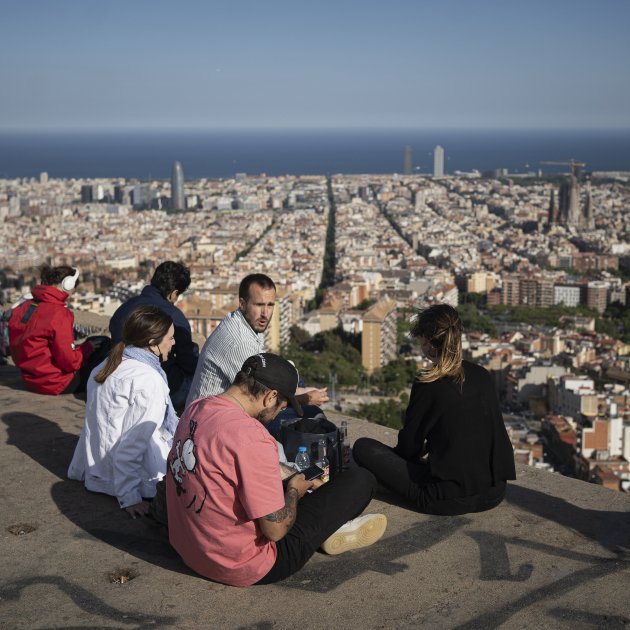More than half (55.6%) of all young people in the Spanish state who have economic difficulties and material shortages also have mental health problems, with unemployment, job insecurity and the housing crisis being some of the main concerns that contribute to undermining this generation's emotional well-being. The data comes from a report published this Thursday by the Spanish Youth Council (CJE) and the NGO Oxfam Intermón, in which they look in depth at the job insecurity situation of young people between 16 and 29 years old and the link between socio-economic conditions and mental health is studied, using the Youth, Health and Well-Being Barometer."When experiences in the labour market continuously arouse stress, dissatisfaction and pessimism about the future, it is not surprising that the most vulnerable youth present a more negative self-perception about their mental health and higher rates of diagnosed disorders", warns the study, called 'High-Wire Artists: the acrobatics of youth to sustain their mental health in an unequal society'.
Among all age groups, the one that has seen the greatest increase in psychological problems is that which includes people between 15 and 34 years old. Specifically, the rate has gone from 5,712 clinical cases per 100,000 inhabitants in 2011 to registering 39,408 cases in 2022, which represents growth of 590%. In fact, among young people aged 16 to 29, 48.9% have experienced suicide ideation and more than half do so on a recurring basis.
"In 2017, 66% of young people in Spain had never had a mental health problem, but now only 36% say they haven't. In addition, 41% experience these problems often. Now it's a majority problem." explains Alejandro García, head of social protection and use policies at Oxfam Intermón and one of the authors of the study. García recognizes that nowadays young people have high awareness of mental health, a reduction in prejudices on this subject and an increase in the ability to identify and talk about everything related to their emotional experiences. "Despite the fact that this may have made problems more visible, it does not remove the fact that the trend is upward and that the problems exist, even if they could have been hidden before. Now it is a problem on the public agenda that was previously buried," he pointed out.
Despite this bleak overall picture, only 17% of young people say they have been seen by a public health mental health specialist and almost 38% say they have not sought professional help because of the cost of private care, as two monthly sessions of psychological therapy represent on average around 15% of the monthly income of this generation, the study points out - around €75 of the €1,005.21 net monthly wage they earn on average (2023). The report criticizes that, faced with this mental health crisis, public health is "under-endowed" with resources, because it has 5.14 psychologists per 100,000 inhabitants, compared to 18 on average in the European Union or 26 as an OECD average.
Dissatisfied and not motivated with their work and economic situation
However, "the problem will not be solved by increasing the number of psychologists", warned Andrea Henry, president of the CJE, who stressed that "access to decent housing must be ensured and that wages must be sufficient in relation to the cost of living to be able to live, because all this is also talking about mental health". In fact, the prevalence of diagnoses of mental health problems is also shown to a high degree in young people who have severe material deficiencies (55.9%) or those who cannot move out of their parents' household due to the prohibitive price of housing (51%). "For the generation of young people, it is difficult to dream of a stable future, since they have to deal with job insecurity, temporary employment and unemployment, they live in a constant state of economic imbalance," points out Raquel Checa, head of the Zero Inequality program of Oxfam Intermón.
When young people are asked about different aspects of life with which they are satisfied, they highlight as positive only those related to family, friendships and free time. On the opposite side, only four out of ten young people surveyed express satisfaction with their studies or work, a figure that drops to three out of ten when asked about their economic situation. 40.3% of young people believe that they will experience worse job opportunities than their parents, compared to 38.4% who think that their future work will be better. This also translates into the fact that almost 40% of young people believe that in the future they will experience episodes of anxiety and low emotional states, the study points out. "Having a young generation that is unmotivated and without future prospects is negative for the whole society", warned the president of the CJE.
